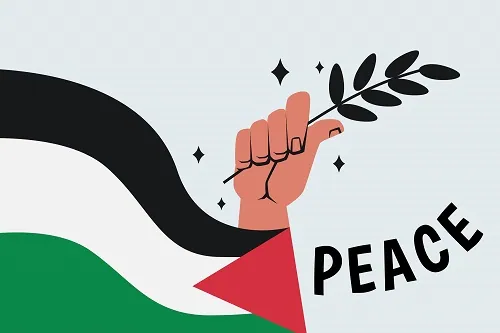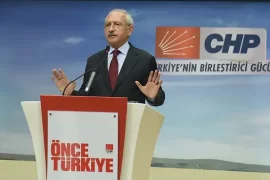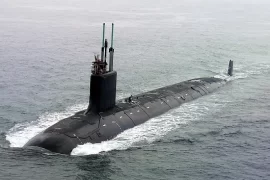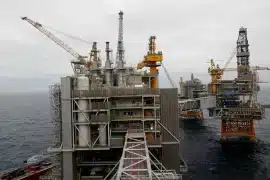China’s success in mediating between Iran and Saudi Arabia sparked renewed interest in its potential role in resolving the Israel-Palestine conflict. China’s long-standing support for a two-state solution and an independent Palestinian state underscores its commitment to finding a peaceful solution to the Israel-Palestine conflict. As tensions continue to simmer in the region, China’s diplomatic prowess could prove instrumental in bringing the two sides to the negotiating table and ultimately forging a lasting peace.
China’s stance on the Israel-Palestine conflict

In both 2013 and 2017, President Xi Jinping presented two four-point proposals aimed at resolving the Palestinian issue. These proposals emphasized the necessity of pursuing a political resolution based on the two-state solution and garnering increased international support for peace. Once again, during his meeting with Palestinian President Mahmoud Abbas in June 2023, President Xi Jinping put forward a three-point proposal regarding the settlement of the Palestinian question. He emphasized the importance of working towards the establishment of an independent state of Palestine, urging the international community to intensify development assistance and humanitarian aid to Palestine, and highlighting the significance of maintaining the correct course of peace negotiations.
China has actively responded to the call of Arab states and asked the UN Security Council to hold emergency consultations on the Israel-Palestine situation, working towards de-escalation. Additionally, China has been in close communication with relevant parties in the international community to facilitate peace talks.
In response to the escalation of conflict between Israel and Palestine in April 2023, Zhai Jun urged all relevant parties to respect and maintain the historical status quo of the holy sites in Jerusalem during a meeting with diplomatic envoys of Arab countries on April 7, 2023. He also stressed the need for all relevant parties to act in accordance with relevant UN resolutions.
Hamas-Israel conflict, October 2023
Again when an intense conflict erupted between Israel and Hamas in the Gaza Strip on October 7, 2023, China once again called upon both parties to exercise restraint and immediately cease hostilities to protect civilians and prevent further deterioration of the situation.
The Chinese foreign ministry issued a statement on October 8, 2023, saying, “The recurrence of the conflict shows once again that the protracted standstill of the peace process cannot go on. The fundamental way out of the conflict lies in implementing the two-state solution and establishing an independent State of Palestine. The international community needs to act with greater urgency, step up input into the Palestine question, facilitate the early resumption of peace talks between Palestine and Israel, and find a way to bring about enduring peace. China will continue to work relentlessly with the international community towards that end.”
China-Palestine relations
China and Palestine have a long-standing relationship that is based on mutual respect, solidarity, and cooperation. China has been a vocal supporter of the Palestinian cause, advocating for a just and peaceful solution to the Israeli-Palestinian conflict. Palestine, in turn, has recognized China’s sovereignty over Taiwan and has supported China’s efforts to promote regional and global stability.
China’s support for Palestine dates back to the 1950s when it recognized the Palestine Liberation Organization (PLO) as the legitimate representative of the Palestinian people. It is also one of the first states to recognize the State of Palestine. Since then, China has provided financial and technical assistance to the Palestinian people in various fields, including education, healthcare, infrastructure, and agriculture. China has also been a strong advocate for the establishment of a Palestinian state based on the pre-1967 borders with East Jerusalem as its capital.
In recent years, the relationship between China and Palestine has deepened, with high-level visits and exchanges between the two sides. In 2017, Chinese President Xi Jinping announced a $7.6 million aid package to Palestine during a meeting with Palestinian President Mahmoud Abbas. The package included funds for economic development, humanitarian aid, and infrastructure projects. President Xi Jinping has consistently conveyed messages of congratulations to the special commemorative gathering in honor of the International Day of Solidarity with the Palestinian People for a decade in a row.
China has also been involved in mediating the Israeli-Palestinian conflict, hosting talks between the two sides in Beijing in 2017. It has called for a “two-state solution” to the conflict, which would establish an independent Palestinian state alongside Israel. It has also urged the international community to support the peace process and to provide assistance to the Palestinian people.
Palestine’s support for China’s Belt & Road Initiative
Palestine, for its part, has expressed its appreciation for China’s support and solidarity. Palestinian officials have praised China’s role in the region and have called for closer cooperation between the two sides. Palestine has also supported China’s Belt and Road Initiative, which aims to promote economic development and connectivity across Eurasia.
However, the China-Palestine relationship is not without challenges. China’s growing economic and political influence in the region has raised concerns among some in Israel and the United States. In addition, the recent COVID-19 pandemic has had an impact on China’s aid and investment programs in Palestine, as well as on the overall relationship between the two sides.
China- Israel relations
China and Israel have a complex and multifaceted relationship that has evolved over the years.
The history of bilateral relations between China and Israel dates back to the early 1950s when Israel recognized the People’s Republic of China. However, it wasn’t until the establishment of diplomatic ties in 1992 that the relationship really began to flourish. Since then, there have been numerous high-level visits and exchanges, including visits by Chinese President Jiang Zemin and Israeli Prime Minister Benjamin Netanyahu.
One of the key drivers of the China-Israel relationship is trade. China is Israel’s second-largest trading partner in the world, next to the US, and Israel is an important source of high-tech products and services for China. The country imports a range of products from Israel, including electronic equipment, medical devices, and agricultural technology. The two countries are expected to sign a free trade agreement in 2023.
In recent years, Chinese investment in Israel has also increased significantly, particularly in the fields of infrastructure and technology.
Chinese Investment in Israeli Ports
Due to its limited road connections with neighboring Arab countries, Israel heavily relies on its ports to facilitate foreign trade. Recognizing this strategic importance, China has made significant investments in building new ports in southern Israel, solidifying its position as a major player in Israel’s infrastructure development and expanding its BRI network.
China’s Shanghai International Port Group (SIPG) built Haifa Bay, one of Israel’s main ports under a 25-year management contract. The Haifa Bayport Terminal began operations in September 2021.
In addition to Haifa Bay, a Chinese company has been building the Ashdod Port on the Mediterranean Coast. However, Swiss-based Terminal Investment Limited will operate this port.
China also made big investments in the Israeli tech industry. In 2018, the two countries signed 72 deals, a majority of which are related to high-tech.
However, the China-Israel relationship has also faced some challenges. Israel’s deepening relationship with China, especially in the fields of infrastructure and technology, has raised concerns among its ally, the United States. As a result, Israel often finds itself navigating a delicate balancing act between its relationship with China and its strong ties with the US.
For instance, the US has already expressed its reservations about China’s increasing influence in Israel’s infrastructure and tech sectors, and Israel is often expected to align with the US on such matters. In fact, on October 30, 2021, Israel stood with the US in condemning China’s mistreatment of the Uyghurs during the UN Third Committee’s human rights discussion, demonstrating the country’s efforts to maintain a strong relationship with its ally while also seeking to expand its economic ties with China.
Moreover, Israel has also been cautious about Chinese investment in sensitive industries such as infrastructure and telecommunications.
Can China mediate the Israel-Palestine conflict?
China has expressed its willingness to play a role in mediating the Israeli-Palestinian conflict. It has been involved in efforts to promote peace and stability in the region. However, whether China can effectively mediate the conflict remains a subject of debate.
On the one hand, China’s position as a permanent member of the United Nations Security Council and its status as a major global power give it some influence in the region. China has also maintained friendly relations with both Israel and Palestine and has been involved in various initiatives aimed at promoting peace and stability in the region, such as the Middle East Quartet.
On the other hand, there are several challenges that could make China’s efforts to mediate the conflict difficult. First, China does not have the same level of influence in the Middle East as the United States or the European Union. Second, the Israel-Palestine conflict is deeply rooted in history, politics, and religion. It involves complex issues such as borders, settlements, and the status of Jerusalem. Finally, the conflict is highly sensitive and emotional. Any misstep by China could potentially inflame tensions and make the situation worse.
While China has expressed its willingness to mediate the Israeli-Palestinian conflict, whether it can effectively do so remains uncertain. The resolution will require the involvement of all parties concerned, including Israel, Palestine, the United States, and the international community.







